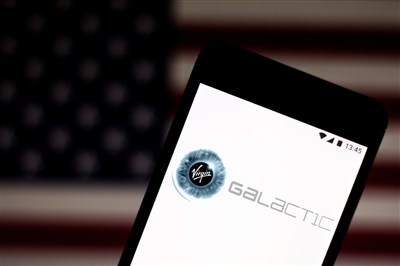
Out of all the niche products that ever existed, space tourism may well be the most niche we've seen to date. That's what makes Virgin Galactic (NASDAQ:SPCE) such a novel idea when it comes to investing. Will those who buy shares be buying what amounts to Disney stock before the parks were built? Or will they be buying shares in a rocketship to nowhere? Based on the recent word from two new analysts, Virgin Galactic is increasingly ready for blast-off.
The Undiscovered Country
Virgin Galactic doesn't technically have a product line yet. In fact, the company believes that it will be ready to start receiving customers early in 2021, although at the rate things are going reopening-wise, that might get pushed back several years.
Yet this hasn't slowed the market down much; already, several firms are getting plans together to haul people up into low Earth orbit, if not necessarily outer space proper. We have Virgin Galactic, of course, but we also have Elon Musk's SpaceX as well as Blue Origin, among others, who are eager to fill seats with equally eager astronauts in the making.
Looking at the numbers for Virgin Galactic, meanwhile, show nothing short of a disaster. The company went into its initial public offering (IPO) about 10 months ago, and in the three times it's declared quarterly earnings, it's declared mammoth losses on virtually no revenue. The first time, the company declared about $500,000 in revenue...and a $73 million net loss.
Next, the company brought out measurable improvement...by only losing $60 million. Of course, it only reported about $250,000 in revenue, too, which ameliorated the good news a bit. With the most recent declaration, the picture was possibly the worst yet, at least ratio-wise; the company upped its losses to $62 million and made absolutely no revenue. One such quarter might have simply been called a slump or some early building losses, but three in a row stops looking like a slump and more like a tradition.
The Eye-Opening Power of Unanimity
So with numbers like that to back it, you'd think investors would be avoiding it in droves. Quite the contrary; going into the weekend, Virgin Galactic had six “buy” recommendations on its side and not a single voice calling “hold” or “sell.” With the most recent developments, that's now standing at eight.
Both Bank of America (also including BoA Securities) and Susquehanna came on board to recommend the stock to those who follow their recommendations. The duo join a list of surprisingly prestigious buy recommendations coming from Alembic Global Advisors, Cowen, Credit Suisse, Morgan Stanley, UBS, and Vertical Research Partners. What's more, Credit Suisse actually upgraded its outlook on the company back on September 9, upgrading the company from “neutral” to “outperform,” which suggests that someone sees something coming.
Just 30 days ago, there were only three “buy” ratings on the stock and one “hold”, which wasn't exactly a bad outlook, just kind of underappreciated. Now, suddenly, any trace of ambiguity has been purged from this stock and we're looking at a heavily-recommended stock. Moreover, a stock with significant upside; the consensus price target currently sits at $26.75, and with a current share price of $18.75, that's a lot of room to grow.
Producing More than Hot Air and Losses
So what's driving all this recommendation? What's bringing eight prestigious investment advisors to give the nod to a company that has not only not turned a profit since its IPO, but has not turned in a loss under eight figures? It's a likely bet that the huge ticket fees are drawing interest; a flight on SpaceShipOne, the only ship Virgin has, will run customers $250,000 to board. Though the costs are downright prohibitive—constructing the ship takes between $30 and $35 million, and the engine needs to be replaced after every flight for an ongoing fixed cost of $250,000 to $275,000—the $1.5 million in revenue per flight is likely a draw.
Given that each SpaceShip built can fly about 50 times per year, reports note, and each one lasts about 10 years, that's optimal total revenue of $750 million per year. Subtract the costs of around $48.75 million—figuring on the high side—and you still get annual revenue of just over $700 million per year, enough to dwarf those startup costs, and startup losses, accordingly.
This leaves a lot out of the picture; it assumes every flight is fully booked forever, and also assumes nothing goes wrong, which is a big assumption in a field like space travel. It also leaves out things like ground operations, but still, even if each SpaceShip makes $250 million over its lifetime, that's still a step forward. Essentially, right now, Virgin Galactic is selling $18 shares in the future, and for those with a sufficiently long lead time, this could be a keystone investment going forward available at flier prices.
Companies in This Article: